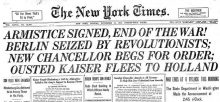CLARIN and the University of Hamburg invite you to submit papers for our full-day workshop on Language resources and technologies for processing and linking historical documents and archives- Deploying Linked Open Data in Cultural Heritage. This workshop will be organised in conjunction with LREC
News
is inviting research communities, research projects and individual researchers to make use of its data services that are available at a European scale and is offering free resources and expertise to pilot collaboration projects as part of its Collaborative Data Infrastructure where users
A special edition of E-Data & Research, is entirely devoted to research infrastructures in the social sciences and humanities . In this edition the following topics apear: An interview with Neelie Kroes , European Commissioner for the Digital Agenda ; Innovative possibilities for collecting data in

This week CLARIN-NL project PoliMedia has won the prestigious international LinkedUp Challenge at the Open Knowledge Conference in Geneva. The LinkedUp Challenge is a competition for groundbreaking tools and applications that analyse and/or integrate open web data for educational purposes. The
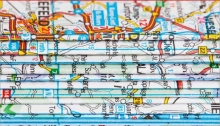
Dieter Van Uytvanck works on the technical development of the online ‘laboratory’ CLARIAH (Common Lab Research Infrastructure for the Arts and Humanities). The CLARIAH facility does not exist yet, but will be built based on work already done in the CLARIN and DARIAH projects and on the infrastructure created by them.
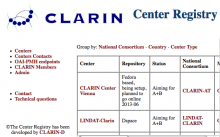
The CLARIN Centre registry lists all CLARIN centres together with contact persons, address and level of services. But why is the centre registry so essential in a distributed infrastructure such as CLARIN? In this article I will review a couple of reasons why I believe the Centre Registry to be one
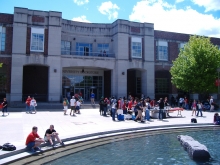
This past week, I attended the Digital Humanities 2013. Following the highly successful DH 2012 conference held at the University of Hamburg, DH 2013 once again attracted a high number of participants from around the world. Without a doubt, Digital Humanities has become the premier international conference for reporting on cutting-edge Digital Humanities research and for providing a comprehensive overview of the field.

On Friday July 5, 2013, I visited the workshop Research Infrastructures towards 2020 organized by the EuroRisNet+ project at the Scientific and Cultural Centre of Macau in Lisbon, Portugal.
In a letter of June 23rd, 2013, CLARIN officially announced its withdrawal from the Licences for Europe dialogue (LfE). In a letter to the chair persons of the Working Group 4 of the Licences for Europe dialogue, the executive director of the CLARIN ERIC, Steven Krauwer, expressed the interest of the research community and explained the discontinuation of participation.

CLARIN congratulates the 9 CLARIN-D centres that successfully passed the centre assessment. After going through a thorough procedure, in which both technical and organisational aspects were checked, the Assessment Committee gave a positive judgement for all the centres involved.
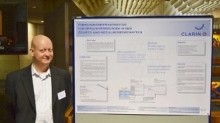
It was in 2008 when we started to think about web services for the eHumanities. In these times, many doubts were expressed: can the web service technology deal with big amounts of data? How can we build asynchronous workflows? or ? Today, most of these questions are answered one way or the other.

Recently The Language Archive has launched a new portal to the Archive, which contains documentation material of more than one hundred endangered languages.
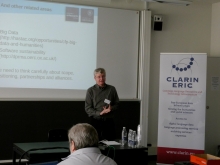
I am very happy to take up this month the position of CLARIN Director for User Involvement. I already know a lot of people in the CLARIN family from my earlier involvement on the executive committee of the CLARIN preparatory phase project, and from many years of working with lots of researchers across Europe on numerous projects.
Federated Content Search ( ) is a technology to access and search resources that are available at different locations. Using a common search page, someone can search simultaneously over the resources available at various places. Technically this means that each location has a search service for
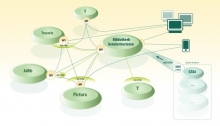
On May 17th interested representatives from several European institutions met in Utrecht to discuss the potential of OpenSKOS for European collaboration concerning vocabularies for the linguistic domain. OpenSKOS is a publication and exchange platform for vocabularies that can be mapped to the SKOS
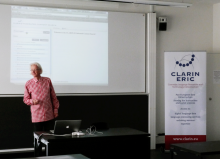
On April 24, 2013 I attended the workshop on Federated Content Search ( ) at CST, Copenhagen. Federated Content Search aims to make it possible to search for data in multiple datasets that can reside on different locations via a single query and without requiring detailed knowledge about the

Asking researchers with fascinating data for options to reuse their data often results in a Contact-me-if-you-are-interested-in-my-data reply. Scholars often do not mind other scholars to have access to their unfinished, raw data as long as they know the other personally, being able to brief them
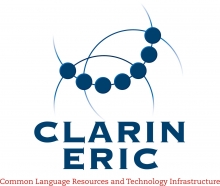
On February 29, the CLARIN has been officially established. Details are available in the press release of the European Commission and the official journal of the EU.
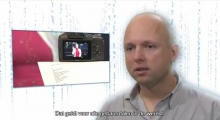
Sign language research is a small branch of linguistics. Wouldn't it therefore be extra easy for people to share and exchange resources? That was the thought that drove a recent workshop on sign language lexicons. With the recent stream of efforts to build sign language corpora, the creation of sign
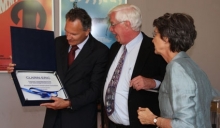
On Monday September 3, Steven Krauwer received a plaquette for CLARIN . The plaquette confirms the EU status of the research infrastructure CLARIN. In the presence of, amongst others, Yvonne van Rooy (parting chair of the Board of Governors of Utrecht University) and Wiljan van den Akker (dean
